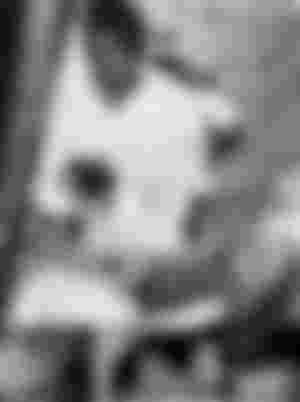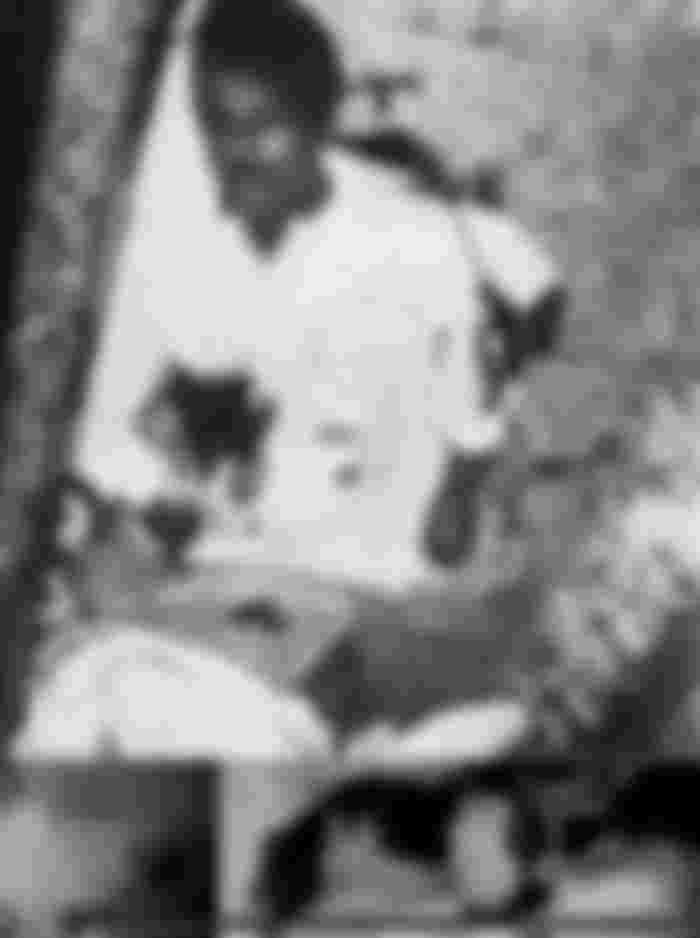Liberation War and Bangabandhu
Introduction: Independence of Bangladesh is the best achievement of Bengalis in the history of thousands of years. And with the history of this freedom struggle, whose name has become ever memorable, he is the father of the nation Bangabandhu Sheikh Mujibur Rahman. People like George Washington of America, Kamal Ataturk of Turkey, Mahatma Gandhi of India, Nelson Mandela of South Africa, Fidel Castro of Cuba are among the people who have liberated their respective nations through struggle and contribution. And there is Sheikh Mujibur Rahman of Bangladesh. He is the undisputed leader of the Bengali nation. Through long struggle and pursuit, he has gained the status of a great son of history. In his life style we get the identity of fighting spirit and diligence.
Born: Father of the Nation Bangabandhu Sheikh Mujibur Rahman, the architect of independent Bangladesh, was born on 17 March 1920 in the village of Tungipara in the present Gopalganj (then Faridpur) district. Father Sheikh Lutfar Rahman, mother Saira Khatun. Bangabandhu Sheikh Mujibur Rahman was the third child of two brothers and four sisters.
Childhood: Bangabandhu spent his childhood and adolescence in a happy family atmosphere at Tungipara in Gopalganj. From his childhood, Sheikh Mujibur Rahman was very agile. Everyone in the house used to call him Khoka for this reason. He was quiet to look at but he had indomitable vitality. He used to jump in the rivers, canals and beels and make everyone drunk. He was also very good in sports. He also had a place in the school football team. From his childhood, Sheikh Mujibur Rahman showed love for the poor and deprived. Once he distributed the rice in his house among the poor farmers of the village. When father Sheikh Lutfar Rahman asked the reason, he replied, ‘This time the paddy of the farmers’ land has been destroyed by all the floods. The farmer is in famine. Like us, they have hunger in their stomachs. They want to live like us. 'The father was very happy to see his son's honest courage and generosity.
Coming to the upper class of the school, the identity of his protestant consciousness also matched. Once the Chief Minister of undivided Bengal Sher-e-Bangla A.K. Fazlul Haque and Minister Hossain Shaheed Suhrawardy visited Gopalganj Missionary School. On their arrival, the headmaster of the school read the certificate. Many others spoke in praise of Sher-e-Bangla but no one raised the issue of schools and students with the Prime Minister. At one stage, after the reception, when they were returning, Sheikh Mujibur Rahman stopped them. On behalf of all the students, he pointed out the problems of the school, i.e. dilapidated dormitory, no books in the library, no gymnasium, no sports facilities, etc. Sher-e-Bangla teenager Sheikh Mujibur was happy to see the courageous and clear statement and philanthropic attitude of the guest and at the same time instructed the higher authorities to solve their problems. From an early age, Bangabandhu had a clear defensive personality.
Student life: Bangabandhu's student life started at the age of seven through Gimadanga Primary School in Gopalganj. After completing his primary education, he was admitted to Gopalganj Mission High School and matriculated from this school in 1942. In 1942 he was admitted to Calcutta Islamia College. From there in 1944 I.A. And B.A. in 1947. Passed. In 1948 he was elected general secretary of the Islamia College Students' Parliament. Student Sheikh Mujibur Rahman gradually developed into leader Sheikh Mujibur Rahman. After the partition of the country in 1947, he was admitted to Dhaka University to study law. He has also led the way against injustice in Dhaka University. He was always active in the movement for the rights of the fourth class employees of the university starting from the student rights movement.
Political life: Bangabandhu became involved in politics and patriotism from his student life. His political career began in the 1940s. He was then the councilor of the All India Muslim Students Federation and the secretary of the Gopalganj subdivision Muslim League. He was one of the founders of the East Pakistan Muslim Chhatra League formed in 1947. He joined the 'All-Party State Language Struggle Council' formed in 1948. He was arrested and imprisoned on March 11 this year during a strike demanding the state language Bengali. He was released when the Nazimuddin government of East Bengal entered into an agreement with the State Language Struggle Council to the effect that a resolution would be adopted in the East Bengal Council recommending the central government to make Bengali the state language of Pakistan. When the Awami Muslim League was formed in 1949, he became the joint secretary and in 1953 he was elected general secretary. In 1954, he was elected a member of the provincial legislature as a candidate of the United Front and was given the ministry of the United Front cabinet. Sheikh Mujibur Rahman was arrested and imprisoned many times while protesting against the deprivation of rights and exploitation of the people of this country.
In 1976, he introduced the six-point Charter of Historical Liberation of the Bengali Nation. During this time he was repeatedly arrested under the Security Act. This is how it goes, periodic arrests. He lived a life of imprisonment. Agartala conspiracy case was filed against him as the main accused. However, in the face of the people's movement, Ayub Khan withdrew the case on 22 February 1969. He was conferred the title of 'Bangabandhu' on 23 February 1969 at a civic reception of lakhs of people at the racecourse ground organized by Chhatra Sangram Parishad. Under his leadership, the Awami League won a single majority in the 1970 National Assembly elections. It is to be noted that the total number of parliamentary seats in Pakistan in this election was 300. On the basis of population, 189 seats were allotted to East Pakistan. Among them, Bangabandhu and his party won an absolute majority in the Pakistan Central Assembly by winning 18 seats and by winning 296 out of 310 seats in the East Pakistan Provincial Assembly, he got the mandate of the people of the then East Pakistan. But without giving a chance to form a government, President General Yahya Khan adjourned the National Assembly session on March 1 indefinitely. In protest, Sheikh Mujibur Rahman called for a non-cooperation movement on 3 March.
Historical Speech of March 7 and Declaration of Independence: From March 3 to March 25, 1971, at the call of Bangabandhu, an all-out non-cooperation movement was carried out all over Bengal. On March 7, Bangabandhu delivered a historic speech at the then Dhaka Racecourse Maidan (now Suhrawardy Udyan) in the presence of about ten people. In that historic speech, he called for freedom struggle till the release of Bengalis. He declared in a strong voice-
This time the struggle is for our liberation,
This time the struggle is for freedom.
At one stage, at midnight on March 25, the Pakistani army attacked the sleeping unarmed Bengalis. The worst massacre in history. That night Bangabandhu was arrested and taken to West Pakistan. Before his arrest, in the early hours of March 26, Bangabandhu declared the independence of Bangladesh. The war of liberation began. During the war of liberation, the government of independent Bangladesh was formed on 10 April in the absence of Bangabandhu. After nine long bloody wars, the sun of Bangladesh's independence rose.
Return to the country: Bangladesh gained independence on 16 December 1971. After his release from prison in Pakistan, Bangabandhu returned to Dhaka on 10 January 1972. On 12 January he took over as the Prime Minister of independent Bangladesh and devoted himself to rebuilding the war-torn country.
Sheikh Mujibur Rahman's Contribution or Reign: Sheikh Mujibur Rahman has conducted everything from freedom to independence with infinite skill and ability. He had a wonderful voice to inspire people. He had a huge reputation as an enthusiastic speaker. Genuine patriotism, deep love for the common people, amiable personality, present intellect have made him the undisputed leader of the Bengali nation. Bangladesh became independent through his hands. For his incomparable contribution in the war of liberation, the nation has accepted him as the 'Father of the Nation'.
Although Bangabandhu Sheikh Mujibur Rahman did not get a chance to stay in power for a long time after the independence of Bangladesh, he took initiative to rebuild the war-torn country as long as he was in power. Shortly after coming to power on 12 January 1972, his role was unacceptable as the Indian forces left the country and surrendered to the Mukti Bahini. 104 countries of the world recognized independent Bangladesh. Bangladesh gained membership of the United Nations, the Non-Aligned Movement and the Organization of the Islamic Conference during Bangabandhu's tenure. The Constitution of Bangladesh came into force on 16 December 1972. During his government, industries including banks and insurance were nationalized. In 1974, he addressed the first General Assembly of the United Nations in Bengali. In 1982, he was awarded the Juliokuri Medal by the World Peace Council. The success of his lifelong struggle for the rights of the people of Bangladesh, which was achieved through independence, has opened a new horizon in the life of the nation.
Death: Bangabandhu made the country independent but the anti-independence assassins could not accept his success and the rise of Bengalis. So the conspiracy started again. As the country moved forward overcoming all obstacles, he became a victim of domestic conspiracies and international cycles. On 15 August 1975, Bangabandhu Sheikh Mujibur Rahman and his family were killed by some misguided members of the then army.
Conclusion: Bangabandhu Sheikh Mujibur Rahman is a unique name in the history of independence of Bangladesh. He is the greatest Bengali of all time and the father of the nation of independent Bangladesh. Bangladesh became independent under his visionary, prudent and correct leadership. He has always worked for the welfare of the nation. He united and inspired all nations in the spirit of liberation and freedom. His self-sacrifice has brought great dignity to the nation. So even today he is forever immortalized in the heart of every patriotic Bengali. In the language of the poet Annadashankar-
‘As long as the river Padma-Meghna-Gauri-Jamuna flows
At that time your Sheikh Mujibur Rahman was famous. '


Born: Father of the Nation Bangabandhu Sheikh Mujibur Rahman, the architect of independent Bangladesh, was born on 17 March 1920 in the village of Tungipara in the present Gopalganj (then Faridpur) district. Father Sheikh Lutfar Rahman, mother Saira Khatun. Bangabandhu Sheikh Mujibur Rahman was the third child of two brothers and four sisters.
Childhood: Bangabandhu spent his childhood and adolescence in a happy family atmosphere at Tungipara in Gopalganj. From his childhood, Sheikh Mujibur Rahman was very agile. Everyone in the house used to call him Khoka for this reason. He was quiet to look at but he had indomitable vitality. He used to jump in the rivers, canals and beels and make everyone drunk. He was also very good in sports. He also had a place in the school football team. From his childhood, Sheikh Mujibur Rahman showed love for the poor and deprived. Once he distributed the rice in his house among the poor farmers of the village. When father Sheikh Lutfar Rahman asked the reason, he replied, ‘This time the paddy of the farmers’ land has been destroyed by all the floods. The farmer is in famine. Like us, they have hunger in their stomachs. They want to live like us. 'The father was very happy to see his son's honest courage and generosity.